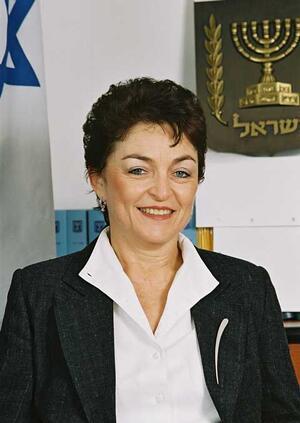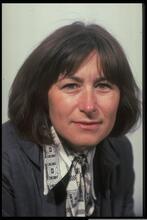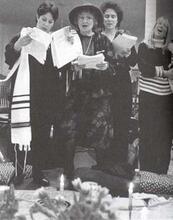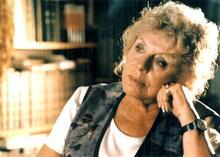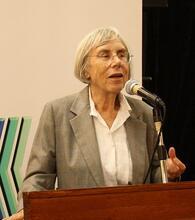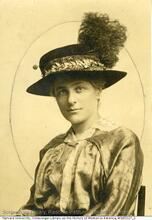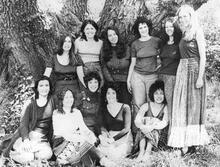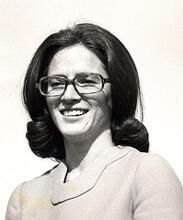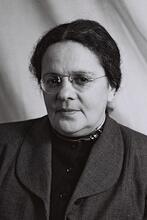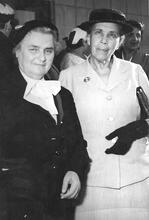Saviona Rotlevy
Saviona Rotlevy, a judge who served on the Israeli District Court, is renowned for her outstanding contributions to the advancement of children’s rights. After ten years of practicing law with a firm and independently, Rotlevy was appointed to the Tel Aviv District Juvenile Court in 1978. During her fifteen years on the District Juvenile Court, Rotlevy was involved in establishing ELEM, the first organization of its kind in Israel, which assists young people at risk or in distress. She then was promoted to Tel Aviv District Court, where she still kept children’s safety and rights in mind. Because of her dedication to children, Rotlevy served as chair of the committee charged with implementing the International Convention on Children’s Rights in the Israeli legal system.
Early Life and Education
Renowned for her outstanding contribution to the advancement of children’s rights and those of women, Saviona Rotlevy was born in Ramat Gan, Israel, on October 7, 1941. Her Viennese father, Otto Regenstreif (Regev, b. 1915), completed high school and immigrated from Poland to Palestine in the mid-1930s. Her homemaker mother, Henia (Aliza), was born in Baligród, Poland, in 1915 and immigrated to Palestine in the mid-1930s. The couple married in 1935. In addition to Saviona, they had two daughters: Ilana (b. 1943) and Astar (b. 1947). Rotlevy has two sons: Ran (b. 1968) and Ori (b. 1975).
Rotlevy completed her schooling at the Ohel Shem High School in Tel Aviv in 1959 and then served in the office of the IDF Spokesperson. After receiving her LL.B. from the Hebrew University of Jerusalem in 1964, she went on to a further year of study at the university’s Institute of Criminology. From 1965 to 1966 she spent a year at Harvard, participating in seminars on criminal law and criminology. After being admitted to the Israel Bar in 1967 she spent ten years practicing law, first with a law firm and then independently.
District Court
Rotlevy’s first appointment, in February 1978, was as a judge in the District Juvenile Court in Tel Aviv and she was promoted to the Tel Aviv District Court in 1993. In her role as District Court judge, Rotlevy is known for passing severe sentences in criminal cases of sexual abuse of children. In this way, she conveyed an unequivocal message regarding society’s zero tolerance for sex offenders and pedophiles, who exploit the powerlessness of children and cause immeasurable damage to the girls and boys who are their victims.
During her fifteen years on the District Juvenile Court, Rotlevy was involved in establishing ELEM, the first organization of its kind in Israel, which assists young people at risk or in distress. She had in fact initially founded the organization while in New York, where she spent the years 1979 to 1981 while her husband served as economic attaché at the Israel Consulate. She was also among the founders of the Council for Children in Care, a voluntary organization which protects the rights of children in boarding schools who have been removed from their homes by the social welfare services.
Children’s Rights
One of the high points of Rotlevy’s activity was her service as chair of the committee charged with implementing the International Convention on Children’s Rights in the Israeli legal system, a position to which she was appointed by the Minister of Justice and in which she remained from 1997 to 2004. The committee’s report was submitted to the minister in March 2004 and Rotlevy continued to follow up on the topic, in order to press for implementation of the committee’s recommendations. These included the recognition of childhood as an autonomous status and called for the protection of children’s rights, ranging from their right to basic existence and to being in touch with their parents, to the child’s democratic rights. Some of the recommendations constitute a revolution in conceptions and principles and are thus controversial: for example, legal representation for children during their parents’ divorce proceedings; science education for pupils in ultra-Orthodox schools; the establishment of children’s political and social rights in educational institutions; the right to obtain information and to participate in criminal proceedings, whether as the victim of a crime or as its perpetrator; and the prohibition of corporal punishment.
“In our work,” Rotlevy disclosed, “we found one factor that links children of all ethnic and cultural backgrounds and of all ages. Their main complaint was that adults lack respect for them.” In her opinion, the violent behavior of children can be corrected by recognizing the child’s rights, which will grant him/her the respect that is his/her due. “A child treated with respect will treat others with respect. Thus there will grow up generations of people who respect the individual.”
Rotlevy’s progressive and liberal outlook found expression in her judicial decisions, which acknowledge alternative families, both adoptive and single-parent, so long as they provide a secure and supportive environment. One of the cases which aroused great controversy was a kind of modern “Solomon’s Judgment” (2005), in which the biological parents, who had put their child up for adoption, later regretted their decision and requested its return. In a minority opinion—which became the majority opinion upon appeal in the Supreme Court—Rotlevy ruled that the child’s good mandated that he stay with the adoptive parents, to whom he had become attached and who provided him with emotionally beneficial parenting.
Other Work
In a somewhat different area of law, Rotlevy gave precedent-setting rulings related to technological crime in the field of computers, telephones and wire-tapping. In this new area of law and communications technology, her decisions have laid down guidelines. One example is the ruling that unauthorized intrusion into voice mail and electronic mail constitutes wiretapping and thus must receive prior court authorization.
Since the early 1990s, Rotlevy has been a lecturer at the in-service training institute for judges and responsible for in-service training on violence against women and child abuse. In the 1993–1994 academic year she taught a course on children’s rights at the Tel Aviv University’s School of Social Work. She is the founder and chair of the Israel Chapter of the International Association of Women Judges (IAWJ).
Saviona Rotlevy retired in 2008, concluding 31 years on the bench. She was awarded Honorary Doctor of Philosophy on January 4, 2012, by the Senate of Tel Aviv University.
Zarchin, Tomer. “The Quality of Judgment,” Haaretz, December 25, 2008 https://www.haaretz.com/1.5078286.

